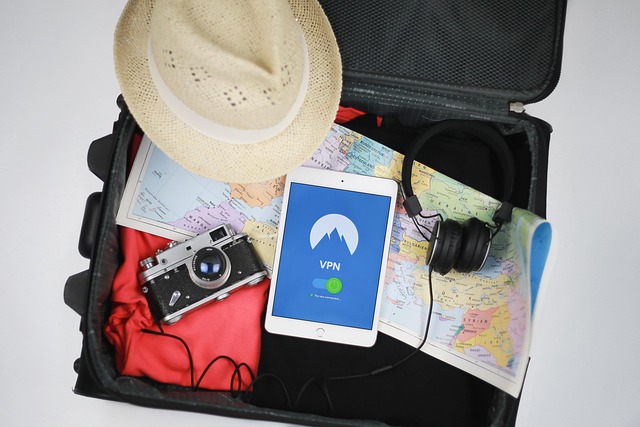Cloud-based storage has transformed data access and management, especially with remote work and smart home devices like security cameras. It offers secure remote monitoring and backup for smart security cameras, enhancing emergency response times and preventing data loss. These systems use encryption and multi-factor authentication to protect data. Integration of smart security cameras adds an extra layer of protection. Role-based access control policies further bolster security. Cloud storage provides unparalleled accessibility and reliability for managing high-resolution footage from anywhere with internet access, making cloud-enabled smart security cameras essential for home and business safety. Secure remote access protocols, including VPNs and regular audits, are vital to protect data integrity and privacy.
In today’s digital era, cloud-based storage offers a revolutionary solution for secure and remote access to data. This article explores the transformative potential of cloud storage for smart security cameras, delving into its key components. We’ll discuss understanding cloud storage for remote access, the robust security measures in place, and the myriad benefits it brings to smart security camera systems. Additionally, we’ll highlight implementing secure remote access protocols for optimal protection.
Understanding Cloud Storage for Remote Access
Cloud-based storage has transformed how we access and manage our data, especially with the rise of remote work and smart home devices like security cameras. By storing information in secure cloud servers, users can remotely access their files from anywhere with an internet connection. This is a significant shift from traditional local storage methods, offering not only convenience but also enhanced collaboration and flexibility.
For smart security camera systems, cloud-based storage provides a robust solution for remote monitoring and data backup. Footage can be securely uploaded and stored in the cloud, allowing homeowners or business owners to review recordings remotely. This enables quick response times during emergencies and facilitates efficient data management, ensuring that no critical footage is lost due to local storage limitations or hardware failures.
Security Measures in Cloud-Based Systems
Cloud-based storage systems have revolutionized data accessibility, but ensuring security remains paramount. These platforms employ robust encryption protocols to safeguard data during transmission and storage. Advanced authentication methods, including multi-factor authentication (MFA), further fortify access control. The integration of smart security cameras within these ecosystems adds an extra layer of protection by monitoring activity and detecting unauthorized access attempts.
Moreover, regular security updates and patches ensure that cloud infrastructure remains shielded against emerging threats. Access control policies, when combined with role-based permissions, enable granular management, restricting sensitive data to authorized users only. This multi-layered approach mirrors the sophisticated mechanisms employed in physical secure facilities, offering peace of mind for businesses relying on remote access to critical information.
Benefits of Cloud Storage for Smart Cameras
Cloud-based storage offers unprecedented advantages for smart security cameras, revolutionizing remote access and data management. By leveraging cloud technology, users can effortlessly store and retrieve high-resolution footage from anywhere with an internet connection. This accessibility is a game-changer, especially for professionals in surveillance and home automation, who now have seamless control over their camera systems without geographical constraints.
Moreover, cloud storage enhances security through advanced encryption methods, ensuring that video data remains confidential and protected. Features like automatic backup and disaster recovery further fortify the system, providing peace of mind and minimizing downtime. With these benefits, smart security cameras equipped with cloud-based storage are becoming indispensable tools for enhancing home and business safety while offering remote access and management capabilities.
Implementing Secure Remote Access Protocols
With cloud-based storage, implementing secure remote access protocols is paramount for safeguarding sensitive data. This involves employing robust encryption methods to protect information during transmission and at rest. Additionally, multi-factor authentication (MFA) adds a layer of security by requiring multiple forms of identification before granting access. For businesses utilizing smart security cameras and other IoT devices, integrating these systems with cloud storage requires specific protocols to ensure data integrity and privacy.
Remote access should be enabled through secure network connections, such as Virtual Private Networks (VPNs), which create encrypted tunnels for data transfer. Regular security audits and updates of access permissions are crucial to identifying and mitigating potential vulnerabilities. By combining these measures, organizations can remotely access their cloud-stored data with confidence, knowing their information is protected from unauthorized access.
Cloud-based storage offers a secure and efficient solution for remote access, especially with the rise of smart security cameras. By leveraging cloud technology, users can seamlessly store and retrieve footage from anywhere, at any time. The implementation of robust security measures ensures data protection, making it a reliable choice for managing smart security camera systems. This approach not only enhances accessibility but also streamlines the overall surveillance process, providing peace of mind in today’s digital landscape.
